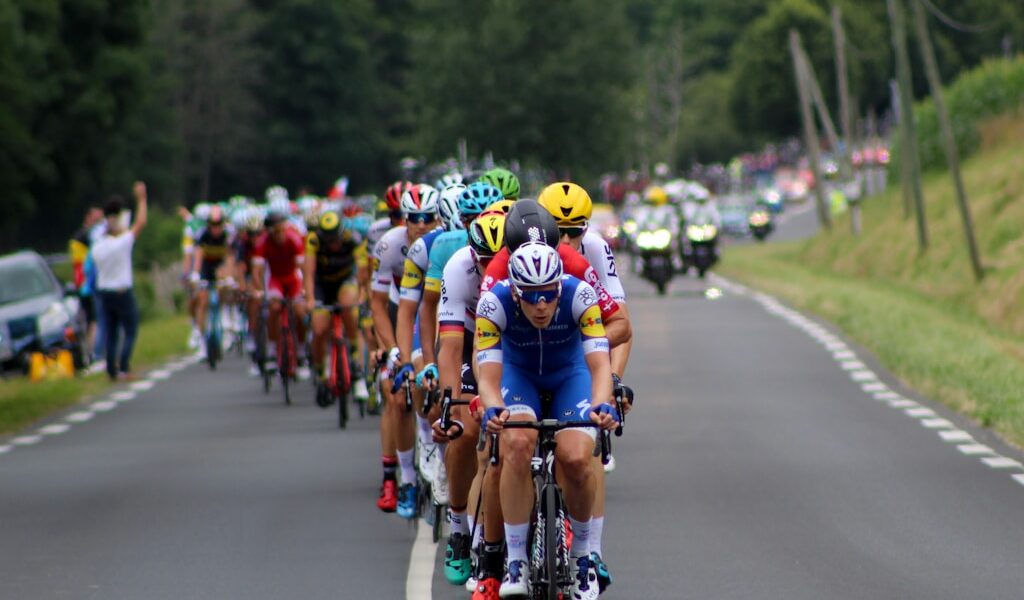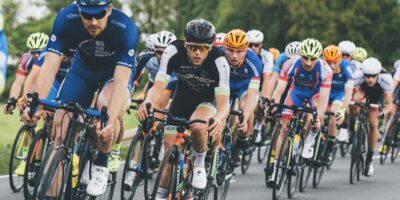How to Train for Bike Races
Bike race training has gotten complicated with all the training plans, apps, and conflicting advice flying around. As someone who’s lined up at everything from local crits to century-length gran fondos, I learned everything there is to know about getting race-ready without losing your mind in the process. Today, I will share it all with you.
Here’s the honest truth: preparing for a bike race goes way beyond just logging miles. You need a structured plan, decent nutrition habits, the right gear, and — this is the part most people skip — mental preparation. Let’s walk through all of it.
Building a Training Plan
First things first: figure out where you’re actually starting from. Be honest with yourself about your current fitness. There’s no shame in being a beginner, but there’s real danger in training like you’re already fit when you’re not. Once you’ve got that baseline, you can set goals that won’t wreck you by week three.
Most good training plans break down into three main phases, and each one serves a different purpose.
Base Training
This is where you build your engine. You’re riding at about 60-70% of your max heart rate for longer periods — think easy conversation pace. It feels almost too easy at first, and that’s the point. Don’t skip this phase or rush through it. I know it’s tempting to hammer every ride, but this foundation is what everything else gets built on. Give it several weeks at minimum.
Build Phase
Now things get spicy. This is where you start mixing in interval training — alternating between high-intensity pushes and low-intensity recovery periods. Your speed and power start climbing during this phase. Structured intervals on a trainer or on a flat road work great here. Something like 4×8 minutes at threshold with 4 minutes rest between sets will make a noticeable difference surprisingly fast.
Peak Phase
During the peak phase, you’re actually riding less total volume but cranking up the intensity. The focus shifts to race-specific efforts — simulating the kind of demands you’ll face on race day. If your race has a big climb at mile 30, practice that. If it’s a crit with constant accelerations, train those surges. This is where you sharpen the blade.
Strength Training
Probably should have led with this section, honestly, because so many cyclists completely ignore strength work and then wonder why they keep getting hurt. Your off-the-bike training should complement what you’re doing in the saddle without turning you into a bodybuilder.
Frequency
Two to three sessions per week is plenty. Seriously, don’t overdo it. You’re a cyclist who lifts, not a lifter who cycles. Too much gym work and you’ll show up to your rides already fatigued, which defeats the whole purpose.
Repetitions and Sets
Two to three sets of 8-12 reps per exercise is the sweet spot. Squats, lunges, and core work should be your bread and butter. Use weights that feel challenging by the last couple reps but don’t have you collapsing. The goal is functional strength, not one-rep maxes.
Nutrition
You can’t out-train a bad diet. What you eat directly affects how you recover and how you perform, full stop.
Carbohydrates
Carbs are your primary fuel source on the bike. This isn’t the time to go low-carb — your body needs glycogen for hard efforts. Stick to complex carbs like whole grains, fruits, and vegetables for sustained energy. Save the simple sugars for during your longer rides when you need quick fuel.
Proteins
Protein handles the repair work after you’ve beaten your muscles up on a hard ride. Lean meats, dairy, legumes, eggs — get protein into each meal, especially post-workout. Your muscles will thank you the next morning.
Fats
Don’t fear fats. Healthy fats from nuts, seeds, avocados, and olive oil are a key part of endurance performance. They’re a concentrated energy source and they help with hormone production, which matters more than you’d think for recovery and adaptation.
Hydration
Drink water throughout the day, not just when you’re riding. By the time you feel thirsty, you’re already behind. On longer rides, electrolyte drinks make a real difference — plain water alone won’t replace the sodium and potassium you’re sweating out.
Bike and Gear
The right equipment won’t turn you into a champion overnight, but the wrong equipment can definitely hold you back or cause problems.
Bike Fit
Get a proper bike fit. I can’t stress this enough. A well-fitted bike reduces injury risk and makes you more comfortable over long efforts. Even small adjustments to saddle height or handlebar reach can make a massive difference. It’s worth paying for a professional fitting if you’re serious about racing.
Components
Invest in reliable components — good brakes, smooth-shifting gears, quality tires. You don’t need the absolute top-end stuff, but cheap components fail at the worst times. And keep up with maintenance. A clean, well-lubed drivetrain shifts better and lasts longer.
Clothing
Proper cycling kit isn’t just about looking the part. Good cycling shorts with a quality chamois will save your backside on long rides, and a well-fitted jersey keeps you aerodynamic and comfortable. Layer up for cold weather, and always have rain gear accessible if there’s even a chance of wet conditions. Nobody races well when they’re miserable.
Mental Preparation
That’s what makes mental training endearing to us competitive cyclists — it’s the one area where a little effort goes a very long way. Your legs might be ready, but if your head isn’t in the game, you’ll crack under pressure.
Visualization
Spend time visualizing yourself riding strong, responding to attacks, finishing well. It sounds a bit woo-woo, but there’s solid research behind it. Athletes who visualize regularly perform better and feel less anxious at the start line. Try it a few times before bed in the weeks leading up to your race.
Mindfulness
Techniques like deep breathing and even basic meditation can help you stay focused when things get hard mid-race. When you’re at threshold on a climb and your brain is screaming at you to stop, having practiced staying calm and present makes a measurable difference. Even five minutes a day builds this skill over time.
Race Day Preparation
All that training leads up to this. Don’t blow it with sloppy race-day logistics.
Nutrition on Race Day
Eat a balanced meal two to three hours before your start time. Carbs, some protein, a little fat. The golden rule: nothing new on race day. Eat what you’ve tested in training. Your stomach does not appreciate surprises when it’s already nervous. And keep sipping water right up until you line up.
Warm-Up
A solid warm-up gets your body ready to perform from the gun. Fifteen to twenty minutes of light spinning with a few short efforts mixed in does the trick. Dynamic stretches for your legs and hips help too. Don’t skip this — going from zero to race pace without warming up is a recipe for an ugly first few miles.
Gear Check
The night before and the morning of: check your bike. Tire pressure, brakes, gears — make sure everything’s dialed. I’ve seen people lose races because of a flat they could’ve prevented or a derailleur that wasn’t adjusted. Takes five minutes and saves a ton of heartache.
Race Strategy
Know the course. Study it ahead of time if you can. Plan your pacing, plan your nutrition, and have a general strategy — but stay flexible. Races rarely go exactly how you planned, so be ready to adapt. The best racers have a plan but don’t panic when they have to deviate from it.
Post-Race Recovery
Recovery isn’t optional — it’s where your body actually gets stronger. Skip this and you’re just digging a hole for yourself.
Cool Down
Spend 10-15 minutes spinning easy after you cross the finish line. Light stretching too. Your legs will feel significantly better the next day if you take the time to cool down properly instead of just flopping on the grass (tempting as that is).
Nutrition
Get a solid meal in within an hour or so of finishing. Carbs to refill your glycogen stores, protein to start muscle repair. A chocolate milk or recovery shake works great as a quick first step, then follow it up with real food when your appetite returns.
Rest
Let your body recover before you jump back into hard training. Listen to what your body’s telling you. Some races take a day to bounce back from; others take a week. There’s no weakness in resting — it’s literally how you get faster. Overtraining is the enemy of progress.
Wrapping It Up
Training for a bike race is a whole-picture thing — structured riding, strength work, good nutrition, solid gear, and a head that’s ready for race day. It doesn’t happen overnight, but with a systematic approach and some patience, you’ll show up to your next start line feeling genuinely prepared. And honestly, that confidence alone is worth the effort.
Recommended Cycling Gear
Garmin Edge 1040 GPS Bike Computer – $549.00
Premium GPS with advanced navigation.
Park Tool Bicycle Repair Stand – $259.95
Professional-grade home mechanic stand.
As an Amazon Associate, we earn from qualifying purchases.


